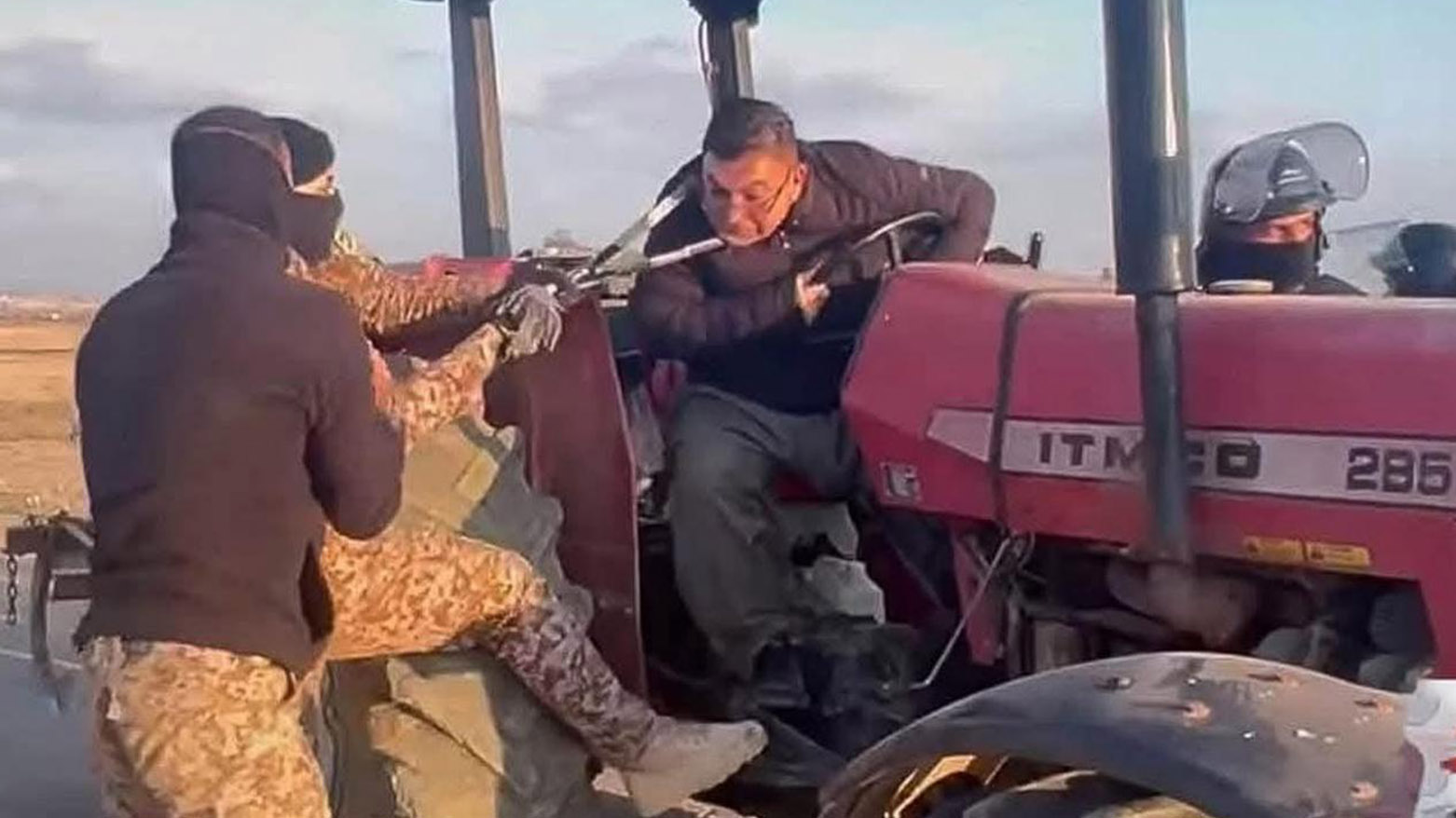Peshmerga Family Assaulted by MP's Guards in Kirkuk, Sparking Widespread Condemnation
Security forces in Kirkuk arrested seven guards of an MP for attacking a Peshmerga member’s family. The incident highlights a pattern of violations against Kurds in disputed territories, including recent assaults on voters and farmers by Iraqi forces.
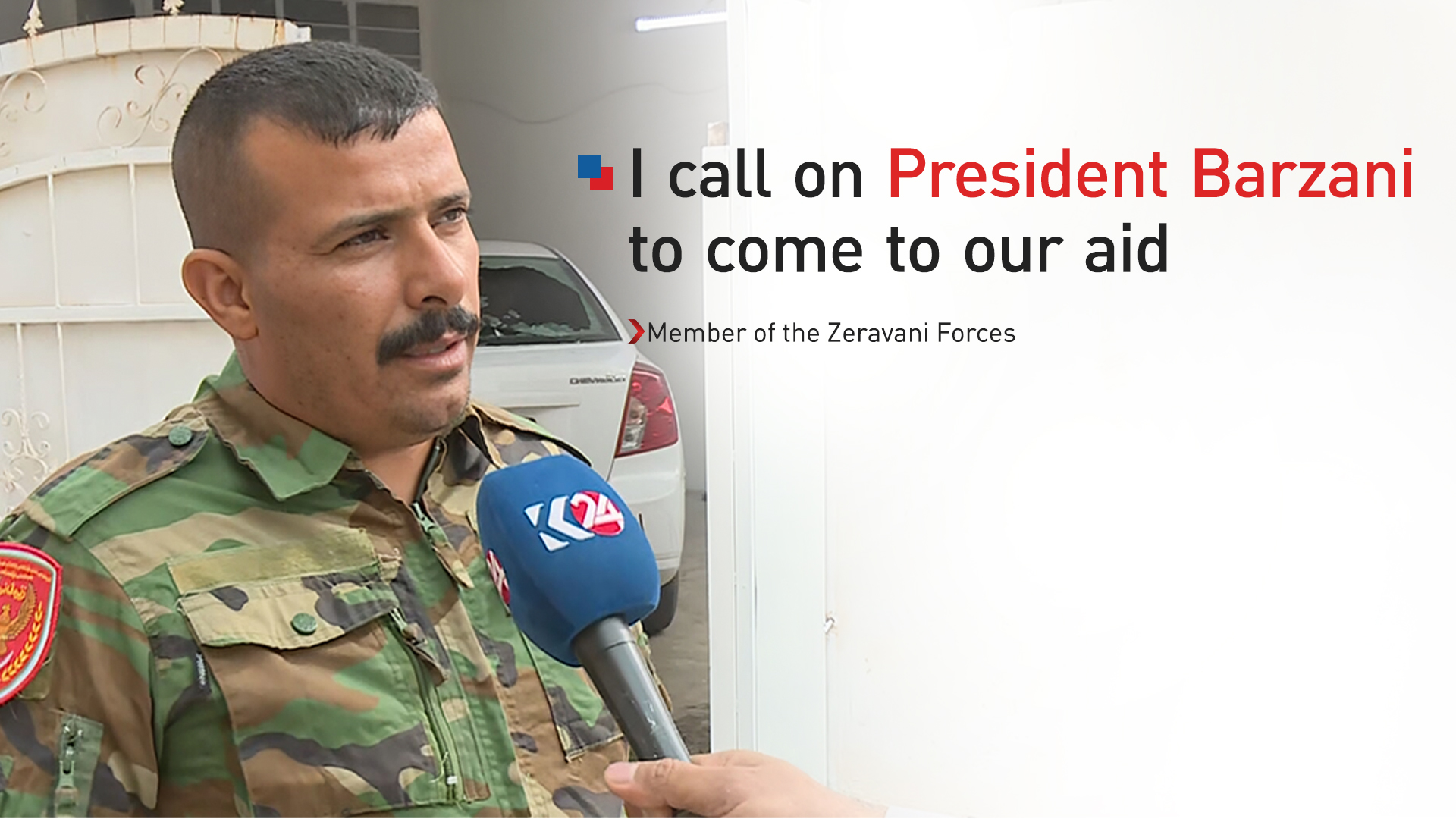
ERBIL (Kurdistan24) – A joint security force in Kirkuk has arrested seven guards of a member of parliament, Muhaymin Hamdani, on charges of attacking the home of a Peshmerga member, firing weapons, and attempting to kidnap his son.
The arrests followed an assault on the family of Ahmed Khalaf, a member of the Zerevani Peshmerga forces, in the town of Dubiz, Kirkuk province.
According to a statement from the Security Media Cell, the joint force from the Kirkuk Operations Command and the provincial police executed arrest warrants for the individuals. The statement noted that the suspects are also accused of assaulting an army officer who tried to intervene during the attack.
“The security of citizens and the dignity of the military establishment are red lines,” the statement emphasized, assuring that investigations are ongoing to apprehend all other individuals involved and that the law will be applied without distinction.
Speaking to Kurdistan24 on Sunday, Ahmed Khalaf recounted the events leading to the assault. He said the incident began when Muhaymin Hamdani, a newly-elected parliamentarian from the Taqadum Party, confronted him about the elections.
“He asked, ‘Why didn't you vote for us in the election?’ I told him, ‘Why should I vote for you? I am a Peshmerga, and I vote for my own party. You are not from my party,’” Khalaf explained.
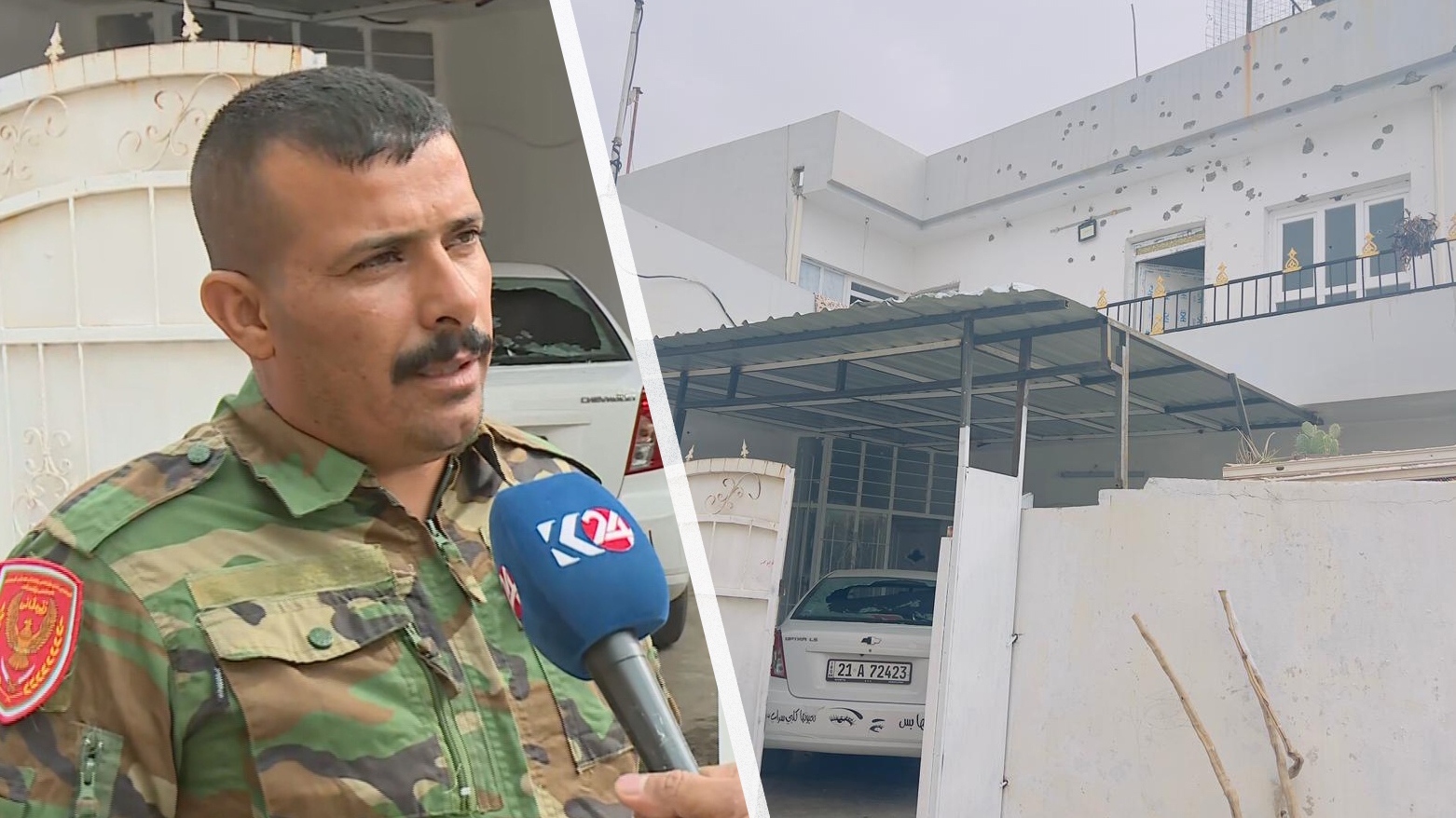
According to Khalaf, Hamdani then threatened him, saying, “I will come for you, and then I will greet you.” Subsequently, Hamdani and his guards arrived at Khalaf’s home, where they allegedly assaulted his mother and brothers and confiscated their mobile phones.
“He insulted me and said, ‘I will kill you,’” Khalaf added. “He is trying to intimidate me. They were about 20 people, and eight of them attacked my house, where Hamdani himself slapped my mother.”
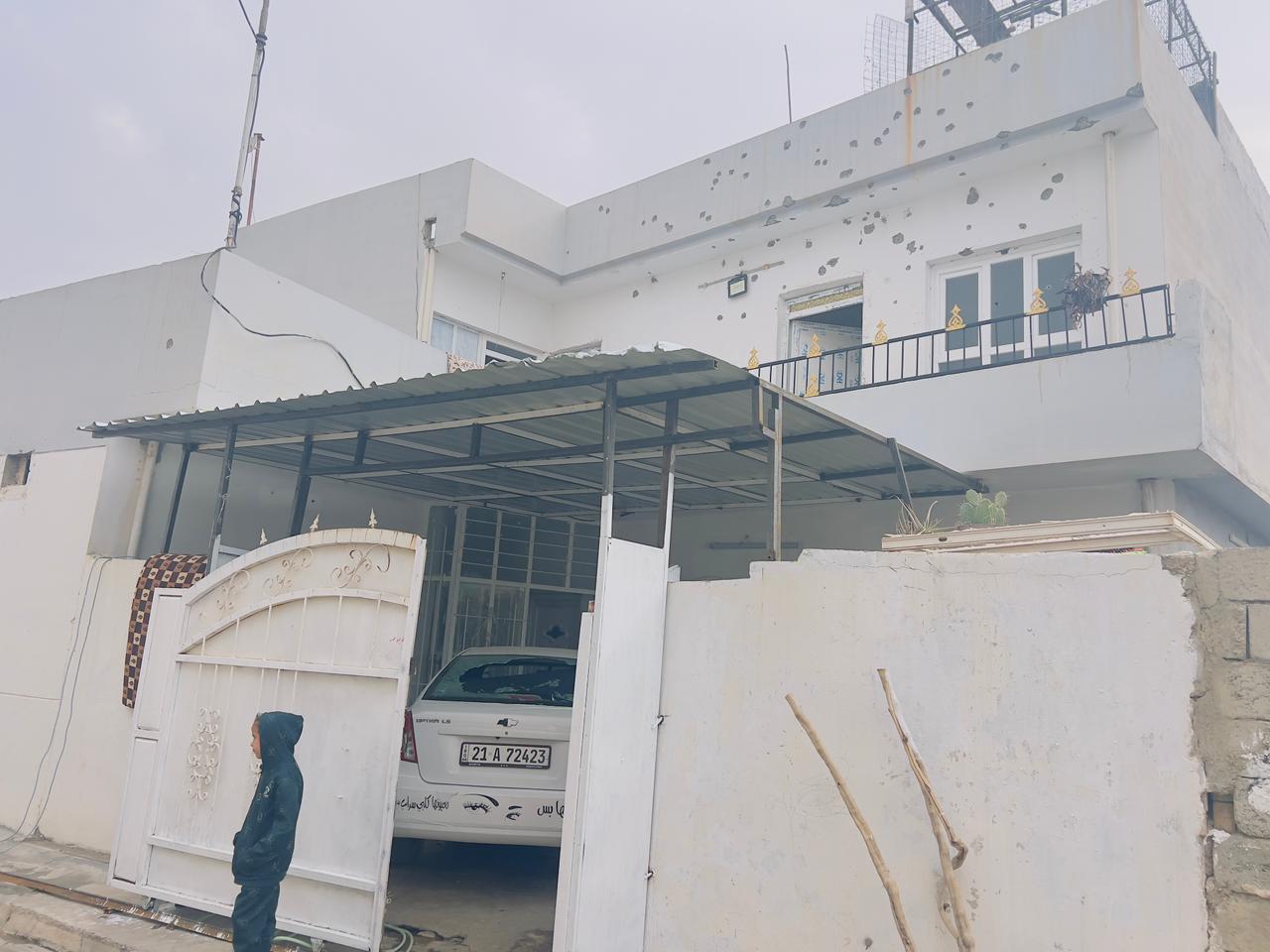
Following the incident, the Iraqi Prime Minister dispatched a special force to Dubiz, resulting in the arrest of six of Hamdani’s guards. Khalaf, along with his mother, sister, and brothers, has filed a formal complaint.
“He slapped my mother and an officer. He also fired bullets at my house and my car, so I will not withdraw my complaint in any way,” Khalaf stated firmly. “We have God, then President Barzani, and the law, so I will not compromise on my rights. We will not accept any tribal reconciliation; Muhaymin must go to prison.”
He also described Hamdani as being “stronger than the law” in the area, claiming he controls the region and restricts people's movement. In his plea, Khalaf said, “I call on President Barzani to come to our aid. I ask for my rights to be restored and for this matter to be resolved.”
The Zerevani Peshmerga Command issued a statement on Saturday, Nov. 15, strongly condemning the attack.
“The elected candidate of the Taqadum Party, Muhaymin Hamdani, attacked the house of a Peshmerga from our command named Ahmed Khalaf, in the Dubiz district of Kirkuk province,” the statement read. “Although he was not at home, the Taqadum candidate fired bullets at our Peshmerga's house and harmed his family.”
The command called the act “inhuman” and urged security forces and the Dubiz administration to take immediate and strict legal measures against the candidate.
“We affirm that we will take all necessary legal measures against him,” the statement continued. “We also inform the administration and security forces of the area that they are responsible for protecting the lives and property of every Peshmerga and their families in the area.”
A Pattern of Violations
This attack occurs within a broader context of ongoing violations against Kurds in Kirkuk and other territories outside the administration of the Kurdistan Region, where they face intimidation from militias and, at times, Iraqi security forces.
Just days earlier, an Iraqi army soldier attacked and beat a young Kurdish man in Khurmatu, south of Kirkuk, for raising the Kurdistan flag on his way to a polling center during Iraq’s parliamentary elections. The Kurdistan Region Ministry of Peshmerga condemned the incident as “a serious violation of human rights and an affront to Kurdish identity,” noting that the Kurdistan flag is constitutionally recognized. Video footage showed the assault, and multiple Kurdish women in the town also reported harassment by Iraqi forces for displaying the flag.
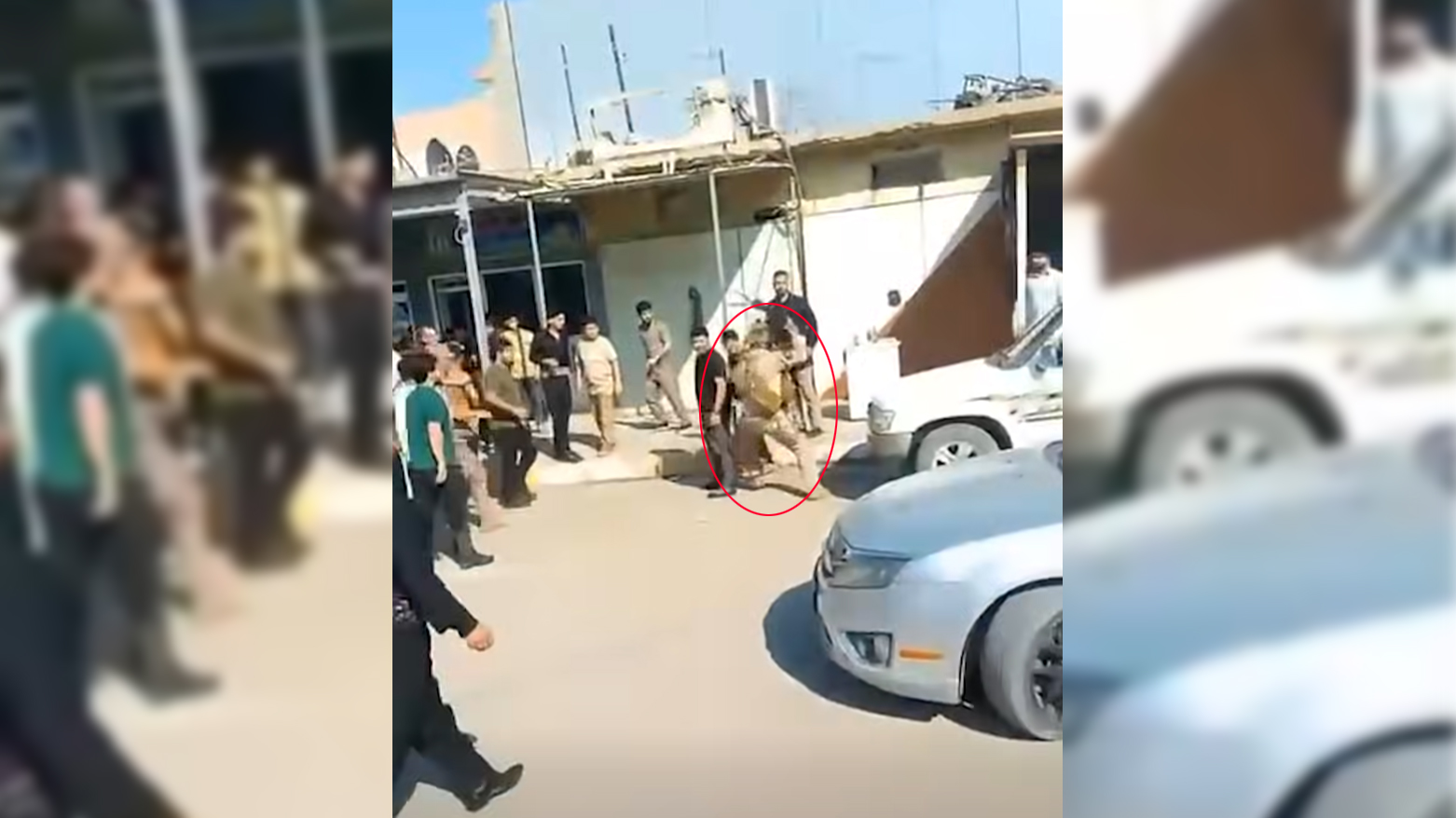
Khurmatu, historically part of Kirkuk with a Kurdish majority, has been a flashpoint of ethnic tensions, particularly after Arabization policies and the military operations of Oct. 16, 2017, which shifted its control to Salahaddin province.
Kurdish farmers in the region also face systematic pressure. Two weeks ago, Iraqi forces in the village of Shanagha, northwest of Kirkuk, arrested two Kurdish farmers, Samad Karim and Nashat Rahman, and confiscated their tractors while they were plowing their own land. They were later released on bail following intervention by Kurdistan Democratic Party (KDP) officials, but their equipment was not returned.
In a separate, widely publicized incident in Shanagha, an Iraqi soldier was filmed aggressively attempting to force a Kurdish farmer off his tractor. The farmer’s defiant declaration, “Even if I die, I will not get down from the tractor!” became a symbol of resistance. Kurdistan24’s coverage of the event led to the Iraqi army attempting to ban the channel from reporting in the area, a demand the media team rejected. In response, farmers issued a 48-hour ultimatum for the army to leave their village. The struggle drew emotional support from figures like Mam Sabir, a respected farmer who tearfully expressed his solidarity, saying, “My heart longed to be there… May I be sacrificed for you. Long live.”
